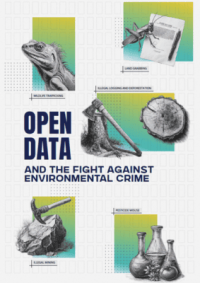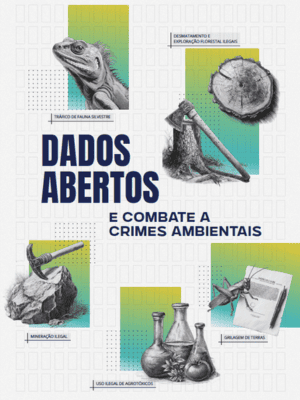The publication “Open Data and the Fight Against Environmental Crimes”, a result of an analysis conducted throughout 2024 by Transparency International – Brazil, the Brazilian Association of Investigative Journalism (Abraji), and the Instituto Centro de Vida (ICV), provides a comprehensive diagnosis of the quality and openness of 41 databases in Brazil. These databases include information from federal agencies as well as state-level agencies in the Legal Amazon region. The study assessed data related to crimes such as deforestation, illegal logging and mining, wildlife trafficking, pesticide misuse, and land grabbing, using criteria such as data update frequency, completeness, accessibility of formats, and open licensing.
The findings reveal significant gaps: while federal databases show an average openness rate of 65%, state-level databases lag far behind at just 33%. Among the datasets analyzed, those related to deforestation monitoring scored the highest, whereas those concerning land grabbing and wildlife protection were the least accessible. The report also offers practical recommendations to enhance transparency and promote the effective use of open data in combating environmental crimes.
This study is a valuable resource for public officials, journalists, researchers, and civil society organizations leveraging public data to develop innovative, cost-effective solutions to address environmental crimes and their connections to corruption and other illicit activities.
This report was written by Brazilian Association of Investigative Journalists (Abraji), Instituto Centro de Vida (ICV) and Transparency International – Brazil. It had the support of Agence Française de Développement (AFD) and Waverley Street Foundation.

